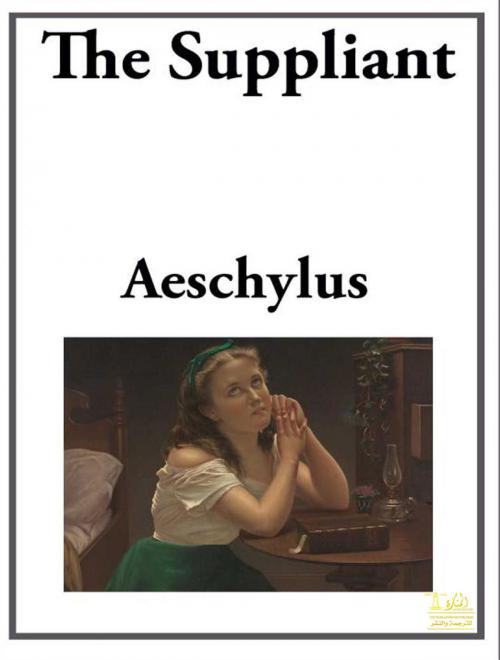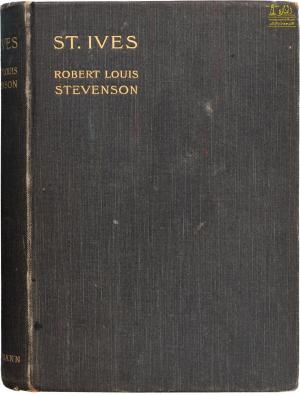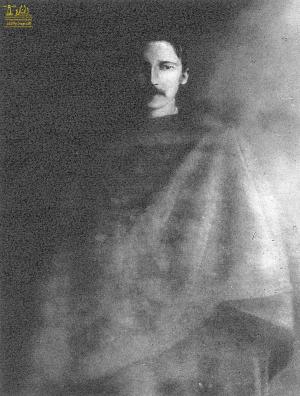| Author: | Aeschylus | ISBN: | 9780599447042 |
| Publisher: | Lighthouse Books for Translation Publishing | Publication: | May 4, 2019 |
| Imprint: | Lighthouse Books for Translation and Publishing | Language: | English |
| Author: | Aeschylus |
| ISBN: | 9780599447042 |
| Publisher: | Lighthouse Books for Translation Publishing |
| Publication: | May 4, 2019 |
| Imprint: | Lighthouse Books for Translation and Publishing |
| Language: | English |
The Suppliants” (Gr: “Hiketides”; Lat: “Supplices”) is a tragedy by the ancient Greek playwright Aeschylus. It is sometimes known as “The Suppliant Women” or “The Suppliant Maidens”. Along with his “The Persians”, it is one of the Western world’s oldest extant dramas. The myth of Danaus and his fifty daughters, on which the story is based, is essentially a foundation legend (or rather a re-foundation legend) of Argos, one of the foremost Mycenaean cities of the Peloponnesus. It shoud not be confused with Euripides’ play, also called "The Suppliants", which deals with the struggle of Adrastus and the Argive mothers against Creon of Thebes to allow the bodies of the Argive invaders to receive a proper burial.
Almost immediately, however, the fleet of Egyptian suitors is seen approaching, and a herald blusters and threatens the Danaides and attempts to force them to return to their cousins for marriage, finally resorting to attempts to physically drag them away. King Pelasgus intervenes and threatens the herald, interposing with an armed force to drive off the Egyptians and thereby save the suppliants. He entreats the Danaides to remain within the safety of the walls of the city.
“The Suppliants” was once thought to be the earliest surviving play by Aeschylus (largely due to the relatively anachronistic function of the Chorus as the protagonist of the drama), but recent evidence places it after “The Persians” as Aeschylus' second extant play. It is still, however, one of the oldest extant dramas from ancient Greece, and in its rudimentary general structure it probably resembles the lost works of Choerilus, Phrynichus, Pratinas and the 6th Century BCE pioneers of drama. Because the suppliant women are essentially both the Chorus and the protagonist, it is perhaps not surprising that choral lyrics occupy more than half the play.
In 484 Aeschylus won first prize in tragedy in the annual competitions held in Athens. In 472 he took first prize with a tetralogy, three tragedies with a connecting theme and a comic satyr play. It embraced Phineus, The Persians, Glaucus of Potniae, and the satyr play Prometheus, the Fire Kindler. Defeated in one dramatic competition by Sophocles in 468, Aeschylus later won first prize with another tetralogy: Laius, Oedipus, The Seven against Thebes, and the satyr play The Sphinx. In 463 he won first prize with the tetralogy now known as The Suppliants, The Egyptians, The Danaids, and the satyr play The Amymone. In 458 he gained his last victory with the trilogy Oresteia. The date of another trilogy, the Prometheia, is unknown, but it was probably produced sometime between The Seven against Thebesand the Oresteia. Only 7 of the perhaps 90 plays that Aeschylus wrote are preserved. Aeschylus was acquainted with the Greek poet lon of Chios, and he may also have known Pindar, Greece's greatest lyric poet. Aeschylus's son and the descendants of Aeschylus's sister also wrote tragedies. The legend that Aeschylus stood trial for divulging the Eleusinian Mysteries but was acquitted on the grounds that he was never initiated may be simply a reflection of his religious environment. He was greatly influenced by the poet Homer, describing his own works as "slices of Homer."
The Suppliants” (Gr: “Hiketides”; Lat: “Supplices”) is a tragedy by the ancient Greek playwright Aeschylus. It is sometimes known as “The Suppliant Women” or “The Suppliant Maidens”. Along with his “The Persians”, it is one of the Western world’s oldest extant dramas. The myth of Danaus and his fifty daughters, on which the story is based, is essentially a foundation legend (or rather a re-foundation legend) of Argos, one of the foremost Mycenaean cities of the Peloponnesus. It shoud not be confused with Euripides’ play, also called "The Suppliants", which deals with the struggle of Adrastus and the Argive mothers against Creon of Thebes to allow the bodies of the Argive invaders to receive a proper burial.
Almost immediately, however, the fleet of Egyptian suitors is seen approaching, and a herald blusters and threatens the Danaides and attempts to force them to return to their cousins for marriage, finally resorting to attempts to physically drag them away. King Pelasgus intervenes and threatens the herald, interposing with an armed force to drive off the Egyptians and thereby save the suppliants. He entreats the Danaides to remain within the safety of the walls of the city.
“The Suppliants” was once thought to be the earliest surviving play by Aeschylus (largely due to the relatively anachronistic function of the Chorus as the protagonist of the drama), but recent evidence places it after “The Persians” as Aeschylus' second extant play. It is still, however, one of the oldest extant dramas from ancient Greece, and in its rudimentary general structure it probably resembles the lost works of Choerilus, Phrynichus, Pratinas and the 6th Century BCE pioneers of drama. Because the suppliant women are essentially both the Chorus and the protagonist, it is perhaps not surprising that choral lyrics occupy more than half the play.
In 484 Aeschylus won first prize in tragedy in the annual competitions held in Athens. In 472 he took first prize with a tetralogy, three tragedies with a connecting theme and a comic satyr play. It embraced Phineus, The Persians, Glaucus of Potniae, and the satyr play Prometheus, the Fire Kindler. Defeated in one dramatic competition by Sophocles in 468, Aeschylus later won first prize with another tetralogy: Laius, Oedipus, The Seven against Thebes, and the satyr play The Sphinx. In 463 he won first prize with the tetralogy now known as The Suppliants, The Egyptians, The Danaids, and the satyr play The Amymone. In 458 he gained his last victory with the trilogy Oresteia. The date of another trilogy, the Prometheia, is unknown, but it was probably produced sometime between The Seven against Thebesand the Oresteia. Only 7 of the perhaps 90 plays that Aeschylus wrote are preserved. Aeschylus was acquainted with the Greek poet lon of Chios, and he may also have known Pindar, Greece's greatest lyric poet. Aeschylus's son and the descendants of Aeschylus's sister also wrote tragedies. The legend that Aeschylus stood trial for divulging the Eleusinian Mysteries but was acquitted on the grounds that he was never initiated may be simply a reflection of his religious environment. He was greatly influenced by the poet Homer, describing his own works as "slices of Homer."















